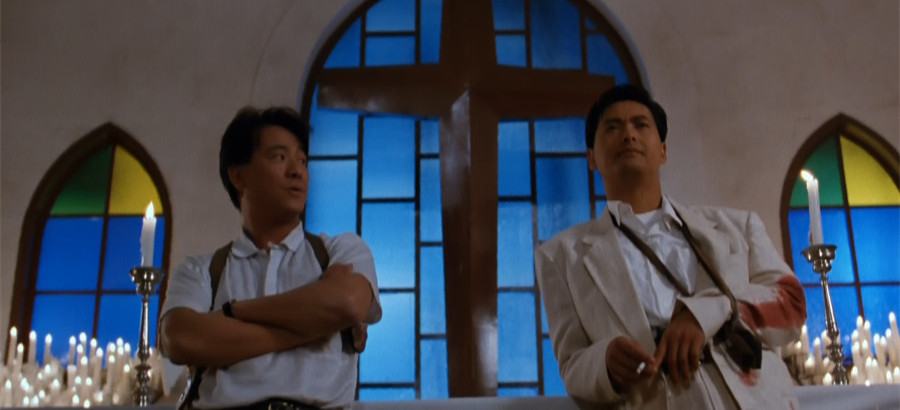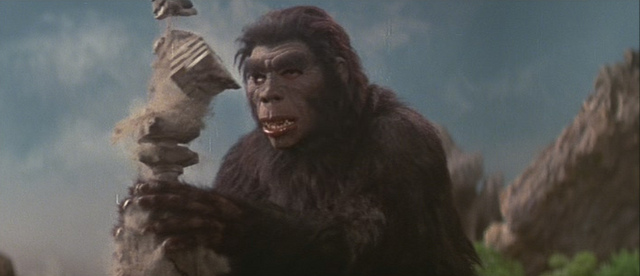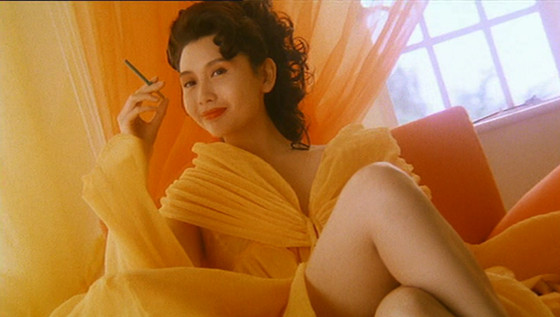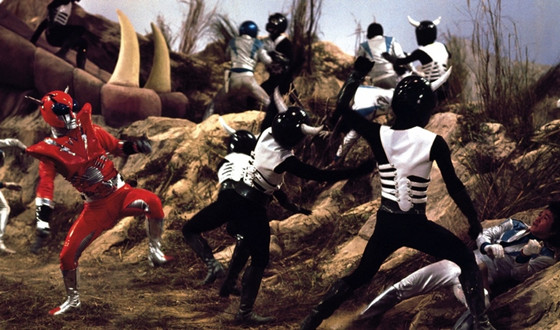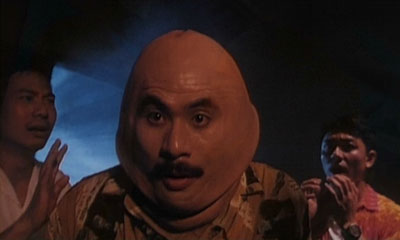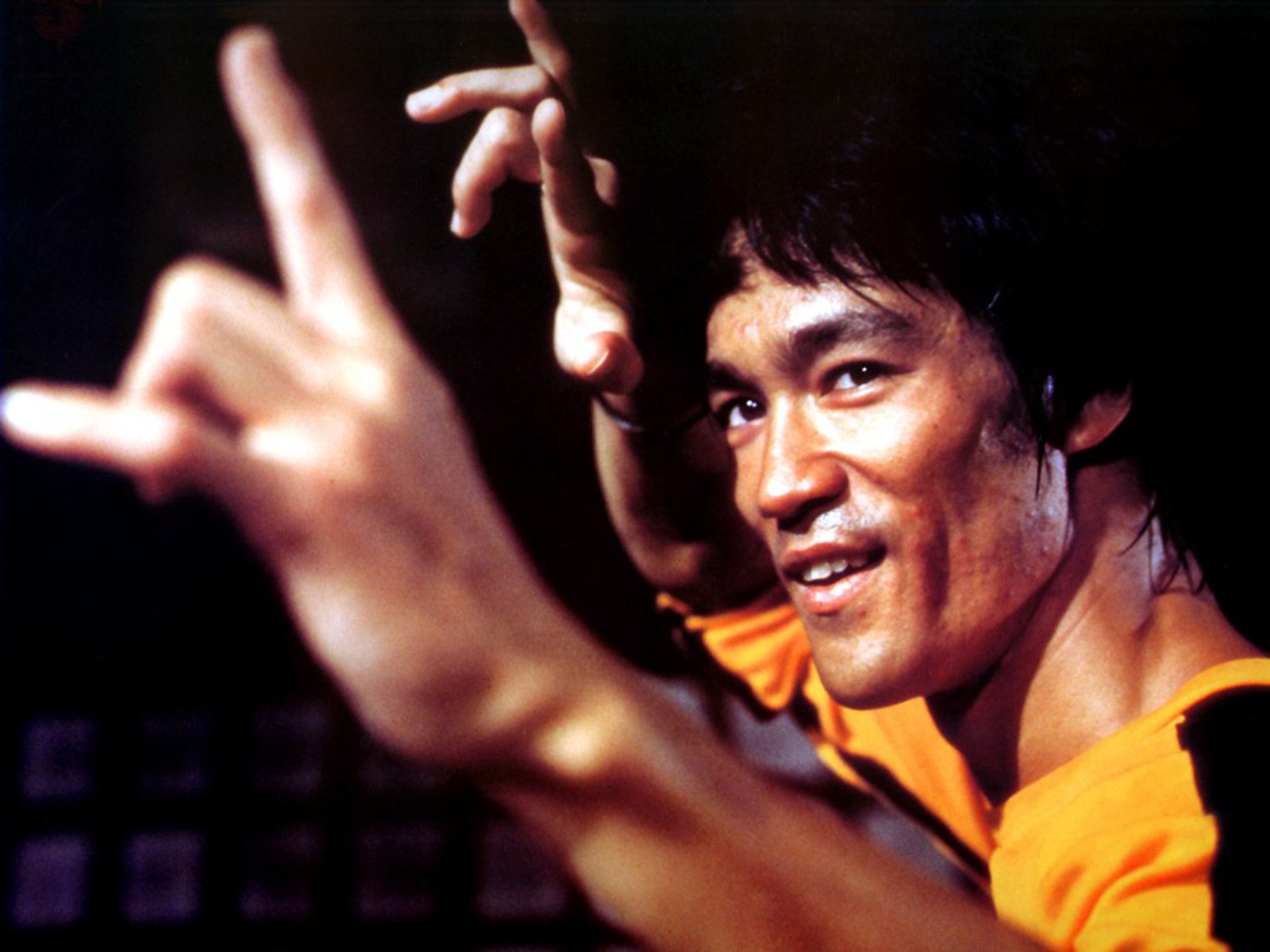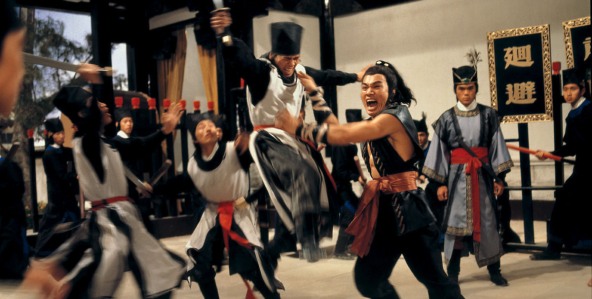The Hong Kong film industry is responsible for some of the most influential films and filmmakers of the last 50 years. It’s an industry most renowned for the epic level of martial arts cinema that captured the world’s imagination back in the 70s and 80s, but it’s also been a source of great films in other genres such as gangster films, horror, science fiction and comedy.
What seems to set a Hong Kong film apart from cinema in other parts of the world is the attitude of never letting the audience have a chance to get bored, always striving for greater heights of extreme onscreen action and outrageousness.
This list of Hong Kong classics is going to focus on a specific brand of Hong Kong output: the cult films that have been the biggest reason for Chinese cinema’s status among movie buffs. For obvious reasons, many of the entries emphasize the martial arts genre, but you’ll see nods to crime thrillers, kaiju, comedy of the 90s.
Like many film industries, many of the same actors and directors turn up again and again, and so you’ll see multiple appearances by Chow-Yun Fat, Simon Yam, Anthony Wong, Wong Jing, and Chang Cheh, not to mention more than one film produced by the mighty Shaw Brothers studios.
No matter what one feels about many of the films discussed here, there can be no doubt that they have all, in their way, had a significant impact on cinema history.
20. The Mighty Peking Man aka Goliathon
The Story:
A team of researchers from Hong Kong University set off for the Himalayas in search of a legendary giant gorilla. On the way they encounter vicious tigers and venomous snakes, and when one of their number goes missing (Danny Lee in an early role) after being captured by the massive ape, they give him up for lost.
Alone, Lee meets a beautiful female Tarzan (Evelyne Kraft), with whom he falls in love. He returns to his companions with the gorilla and his new romantic interest, after which they’re all taken to Hong Kong, where the head of the expedition plans to put the gorilla on display for profit. After enduring torments at the hands of his captors, he escapes, causing destruction and mayhem throughout the city while his human friends try to keep the military from killing him.
Why You Should See It:
Produced exclusively to cash in on the release of the 1976 Dino de Laurentiis remake of King Kong, Mighty Peking Man manages to out-perform that film in some key ways. Unlike the remake, the action gets going right away, showing the monster attacking a small village in a flashback.
The filmmakers have no interest in coyly hiding their creature until later in the run time or engaging in time-wasting story development; the approach here is to pull the audience in from the beginning, and they succeed handily.
Slammed by critics at the time as a cheap rip-off, the movie thrills in ways that can’t be denied by anyone who takes the time to watch it.
The Motown-style soundtrack is priceless, there is some surprising gore that comes at the end of a fight scene between a stuntman and what appears to be an actual tiger, and the gorilla’s rampage in the last twenty minutes is as colorful, explosive, and minutely detailed as anything produced by Toho Studios in its many giant monster features.
Roger Ebert even retracted his original negative review of the movie after viewing it again years later. It’s also noteworthy for being one of the films released by Quentin Tarantino’s now-defunct Rolling Thunder video distribution company back in the late 90s.
19. Naked Killer
The Story:
Simon Yam plays a cop with serious firearms issues (after accidentally shooting his own brother, he throws up at the sight of guns) pursuing a killer who gives special nasty attention to a certain part of the male anatomy. After witnessing a woman named Kitty (Chingmy Yau) repeatedly stab a man, he thinks he’s found a suspect, but ends up letting her go.
During an incredible gymnastic gun battle in a parking garage, she runs into Sister Cindy, an assassin who targets dastardly men—she even keeps several chained up in her basement for practice. The two become a team, but then run afoul of another killer with ties to Sister Cindy.
Why You Should See It:
Infamous parodist/schlockmeister Wong Jing wrote and produced this film, essentially a spoof of Basic Instinct with all of the prurient elements turned up by a factor of 10. Unlike Paul Verhoeven’s randy classic, it isn’t shy about putting the more salacious (and attention grabbing) aspects of the film’s romantic relationships front and center. As this is a Hong Kong film made in the 90s, there’s also a smattering of airborne kung fu action and unrestrained gunfire.
There are many wicked and bloody moments, but none of it comes off as terribly offensive or cringe-inducing, and overall everything seems amazingly tasteful for a movie that features frequent risqué scenes and off-color humor.
18. Infra-Man
The Story:
A newly-minted cyborg superhero (Danny Lee) does battle with the ancient Princess Dragon Mom and her prehistoric monster minions, which include but are not limited to an octopus man and a pair of metallic warriors with spiked balls for hands, as they try to take over the Earth.
Why You Should See It:
Colorful sci-fi pop art delirium as seen through a filter of hallucinogenic mushrooms. Shaw Brothers takes a cue from the Ultraman TV series, fractures the particulars into a kaleidoscopic tornado of monster karate and lasers, and hurls it at the viewer with a liberal dose of explosions, kaiju action, and motorcycles.
Detractors might say that this is nothing more than Power Rangers with Mario Bava lighting and ADHD, overlooking the fact that Shaw Brothers did it decades earlier, with an exuberant sense of fun and inventiveness missing from similar entertainment. Never mind the cheesy costumes and comical story—this is all about fun, and it’s there in goofy, unselfconscious spades, like the best Saturday morning cartoon ever produced.
17. The Eternal Evil Of Asia
The Story:
A group of young men vacationing in Thailand get on the bad side of a local wizard when they accidentally kill his sister. He follows them back to Hong Kong, employing a voodoo doll and other dark spells to enact his revenge. Worst of all, he promises to ravish and kill the wife of the one man who had least offended him. Luckily, his wife has made friends with a young Thai witch living in the city, who tries her best to prevent the remaining victims from the wizard’s vengeance.
Why You Should See It:
People watch cult films from Hong Kong for certain reasons, good taste not being chief among them. With that in mind, this horror/comedy presents for curious viewers images that they will probably not find anywhere else.
A man’s head is turned into a giant penis with his face on it. A sorcerer couple—shall we say commingle?—in mid-air while blasting their rival with explosive energy bolts. A man goes into a cannibalistic frenzy in a busy restaurant, and out of desperation chews his own arm down to the bone.
Star Ellen Chan is violated by a phantom presense while swinging from a chandelier. All of which walks the line between extremely questionable taste and brilliant audacity, and that is, essentially, what sets most Asian film industries apart from Hollywood—the ability to entertain ideas that would never make it to the screen in the West. The Eternal Evil Of Asia represents that freedom as fully—and, truth be told, as engagingly—as any other film out of Hong Kong in the 90s.
16. Way Of The Dragon aka Return Of The Dragon
The Story:
Bruce Lee plays a young man who travels from Hong Kong to Rome to visit his uncle and cousin and help them out with some trouble they’re having with the mafia, who want them to sell their restaurant. The local mob boss repeatedly tries to intimidate and kill Lee, to absolutely no effect, and eventually resorts to hiring martial arts experts to take him out (one of whom is played by Chuck Norris).
Why You Should See It:
The only one of Lee’s film written, produced, and directed by Lee himself (Game Of Death doesn’t technically count because he died before it could be completed), Way Of The Dragon showcases Lee at his very best, and demonstrates as well as any of his films why he became the James Dean of the martial arts world.
He proves himself to be a competent director, shooting comedic and action scenes alike with enough flair to make one wonder what he could have accomplished had he lived to produce more works. Certain moments also seem to reflect Lee’s own philosophy about life, and impatience with tradition in the face of new ideas—his character at one point remarks that he would tear down some of the old architectural relics of Rome and put up high rises if he had his way.
It was often said that Lee had to slow himself down in order to be caught on film, and Way Of The Dragon is a testament to that. Often he moves so quickly as to seem only a blur.
The film’s two key action sequences—a fight in an alley in which he incorporates a staff and nunchucks, and his final fight with Chuck Norris’ character—are better shot than even the best scenes in Enter The Dragon, and Lee comes off as at least the equal of Lo Wei, who directed him in The Big Boss and Fist Of Fury.
Although it’s not without blemishes (the depiction of a black man and gay man are not especially open-minded or flattering), it’s good enough to make anyone wonder what Lee might have done given more time.
(One side note: the English dub can be a little confusing. Because every character is dubbed speaking the same language, it’s not always clear that Lee isn’t supposed to understand what some people are saying to him because he doesn’t speak Italian, and needs his cousin to translate for him. This is too bad, because some of the comedy loses its timing.)
15. Five Deadly Vemons
The Story:
A martial arts master has trained five students in different styles of kung fu: Centipede, Scorpion, Lizard, Snake and Toad. The students do not know one another’s identities, and each has gone his own way. Fearing that one of them might be plotting to steal the martial arts clan’s fortune, he sends a sixth student, trained in elements of all five styles, to try to team up with one of the others and stop the offending party.
Why You Should See It:
One of director Chang Cheh’s best known films, the cult status of which cannot be underestimated. References to it come up in film, music and television all the time, and it wound up making stars of the six main actors (Kuo Chi, Lu Feng, Chiang Sheng, Sun Chien, Lo Mang and Wei Pai) who came to be known by fans as the Venom Mob.
This is a movie that came from a time when Shaw Brothers output didn’t look as fine-tuned as their films from the previous decade—production schedules likely became tighter as the demand for more releases grew.
Weighed against other Chang Cheh films from around the same time, Five Deadly Venoms actually isn’t the strongest—there are fewer fight scenes and less urgent pacing than in, say, Five Element Ninjas or Crippled Avengers—but it nonetheless gained notoriety mostly on the strength of its uniquely oddball central concept. (One character, the master of Lizard kung fu, along with being a capable fighter, also has the ability to walk on walls.)
It’s also more cruelly violent than many kung fu films, which is really saying something (the protracted torture scenes of the Toad, while not terribly hard to watch, are still nasty.)
Worth noting as well is one of the most memorable openings of any old-school martial arts movie, in which each individual master, clad in black and wearing a mask symbolizing the animal his style is based on, runs through a furious demonstration of his abilities, destroying tableware and other breakables in mesmerizing slow motion.
